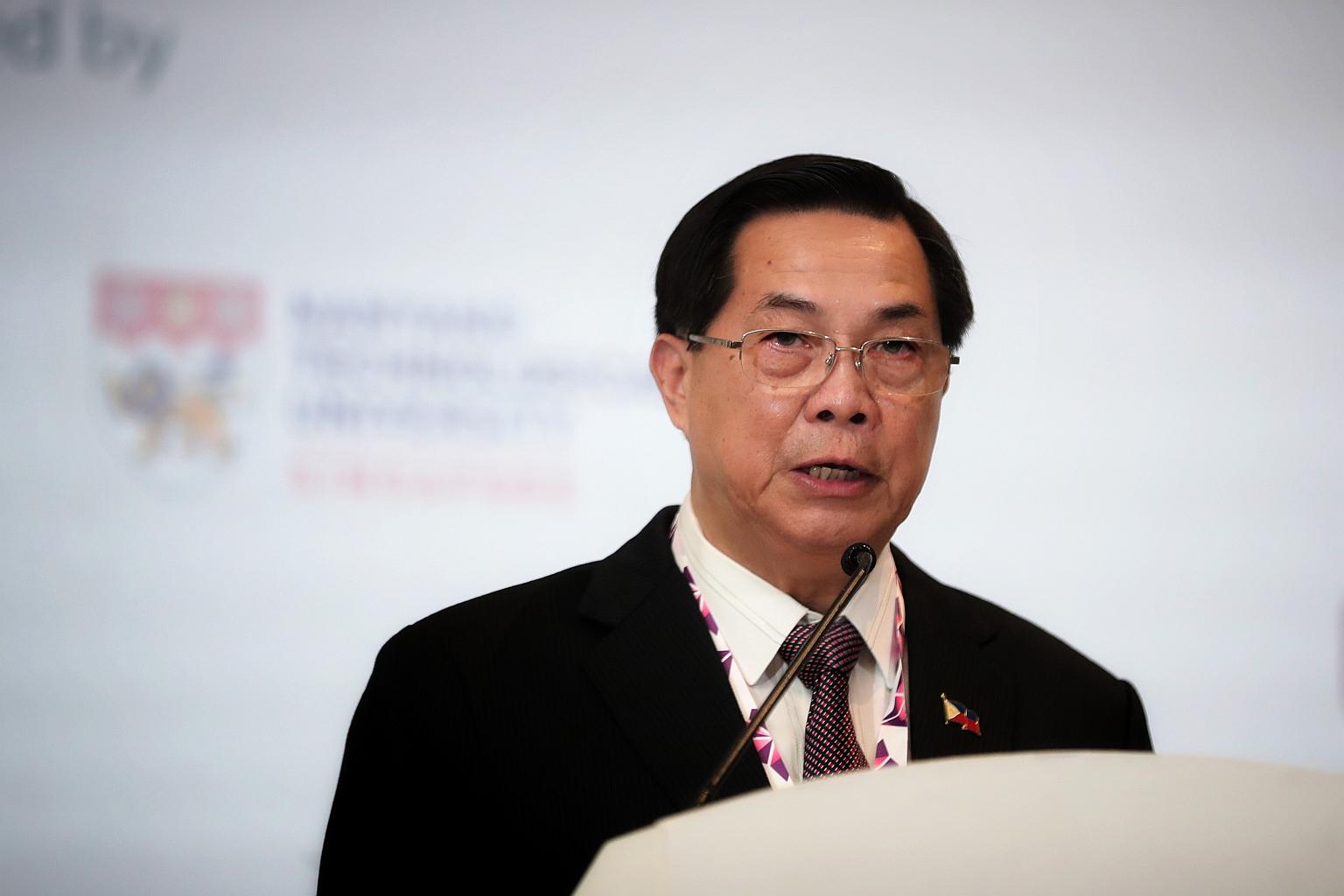Jakarta minister cites Marawi siege to stress sharing of intelligence
Sign up now: Get ST's newsletters delivered to your inbox

The May 2017 siege of Marawi in the Philippines could have been prevented or even pre-empted, said Indonesia's Defence Minister Ryamizard Ryacudu.
ST PHOTO: KELVIN CHNG
Precious lives could have been saved if government agencies and ministries within the region had shared and exchanged quality intelligence during the May 2017 siege of Marawi in the Philippines.
The incident could have been prevented or even pre-empted, Indonesia's Defence Minister Ryamizard Ryacudu said yesterday in his keynote address at the opening of the 2018 South-east Asia Counter-Terrorism Symposium: A Collective Approach.
"The siege of Marawi demonstrated that our region was unprepared for the current and emerging wave of terrorism," said the retired general. "It also demonstrated the need for a new security architecture for the Asean region."
Mr Ryamizard was one of four guest speakers at the event organised by the S. Rajaratnam School of International Studies (RSIS). The two-day symposium at the Grand Copthorne Waterfront Hotel was organised as part of Singapore's Asean chairmanship.
The Marawi attack by Filipino militants aligned with the Islamic State in Iraq and Syria (ISIS) group was cited by the minister to highlight lapses in intelligence sharing.
"Regional governments were culpable for not exchanging intelligence sufficiently to prevent the fall of Marawi city to IS (ISIS). Even after the siege of Marawi, the flow of intelligence was absent, partial or flawed," he said.
The siege lasted five months, resulting in more than 900 militants being captured or killed.
While ISIS may have been defeated in the Middle East last year, the threat of terrorism remains a key challenge in South-east Asia.
Today, 63 terror groups in Southeast Asia have pledged allegiance to ISIS leader Abu Bakr Al Baghdadi.
On May 13, there were multiple suicide attacks involving entire families - including women and children - in the Indonesian city of Surabaya. Recently uncovered plots revealed plans by terrorists to make anthrax and botulinum in Malaysia, and ricin and thorium in Indonesia.
Mr Ryamizard added that the July 31 suicide bombing in Basilan in the Philippines by a Moroccan terrorist was "the most significant recent attack".
Asean is trying to get its act together. On Jan 25, six nations from the region formally launched the Our Eyes Initiative in Bali to share intelligence among themselves.
The idea for this originated when he visited RSIS in July last year, Mr Ryamizard said.
"Evil will spread when good men do nothing. We have to do something (to fight terrorism)," he said.
Mr Ryamizard added that meeting Singapore's Law and Home Affairs Minister K. Shanmugam gave him confidence to build a collaborative intelligence platform.
In the end, the defence ministers of Indonesia, Malaysia, the Philippines, Thailand, Singapore and Brunei agreed to establish a joint working group, with plans to include more nations later.
The new pact would create a common database, facilitate the exchange of personnel, and share expertise, resources and experiences, including conducting joint training and operations.
Still, returning ISIS fighters continue to be one of the current concerns, said Ambassador-at-Large Ong Keng Yong, executive deputy chairman of RSIS.
Unlike Al-Qaeda and Jemaah Islamiah, ISIS has capitalised on the use of cyberspace to spread its violent message.
"ISIS operatives, sympathisers, fanboys and fangirls have benefited greatly from the use of the darker corners of the Internet," Mr Ong said in his opening remarks.
Philippine Undersecretary of National Defence Cardozo Luna said the recent terrorist attacks in South-east Asia have shown patterns of "radicalisation, sources of terror financing and technological and tactical sophistication".
"Daesh (ISIS) has been able to provide occasional money transfers to the Maute group (involved in the Marawi attack) using electronic transfers," said Mr Luna.


